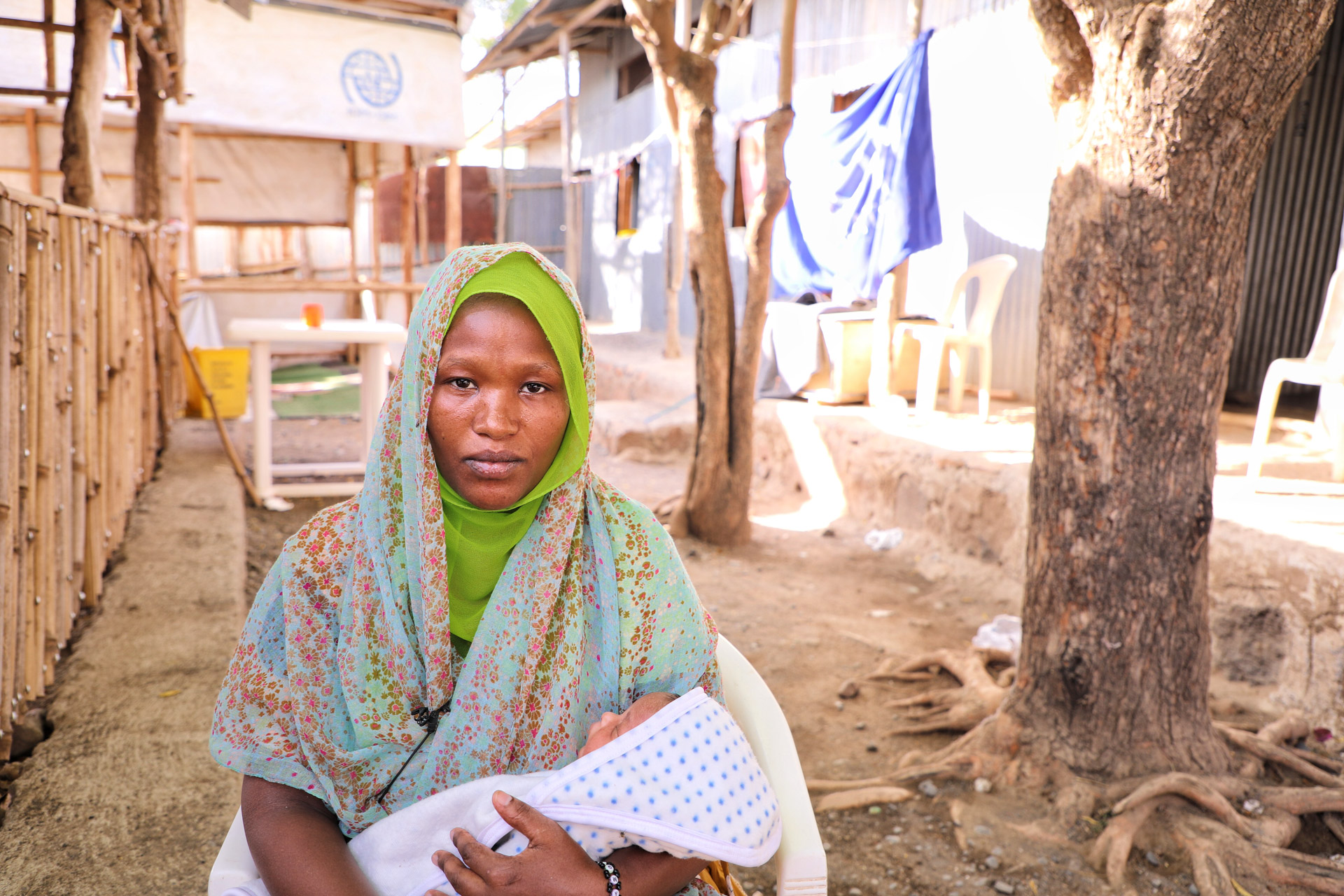Metema, 12 June 2023 – Rahama was confronted with two options: to give birth to her third child amid a raging armed conflict in the Sudanese capital of Khartoum or to pack her bags and head towards Ethiopia.
“I was due to deliver my baby at any moment, but I looked through the window and all I could see was smoke everywhere and guns firing from different directions. That's when I thought that my unborn child and the rest of my family might have a better chance at survival if we left,” says Rahama.
Aboard a crowded bus, the family embarked on the long and perilous journey to Ethiopia carrying with them the little they managed to pack.
Six years ago, Rahama and her husband migrated from their home country of Ethiopia hoping to have a better life in Khartoum. She found work as a cleaner while her husband worked as a cook in a small cafeteria.
“I’ve always wanted to come back because I left my eldest child in Ethiopia, but this was not the reunion I had planned for,” she says.
Two days later, the family arrived exhausted, both physically and mentally, in Metema, a remote and dusty town in northwestern Ethiopia on the border with Sudan.

Rahama, an Ethiopian returnee, gave birth a day after crossing to Ethiopia from Sudan. Photo: IOM 2023/Kaye Viray
Just when Rahama felt like she could breathe a small sigh of relief after making it out of Sudan alive, shortly after arriving, she went into labour.
She was assisted by staff from the International Organization for Migration (IOM) and partners who referred her to the nearest medical centre where she had a successful delivery. The next day, Rahama and her family were brought to IOM’s temporary Migration Response Centre (MRC) in Metema. There, she received further medical and psychosocial support, shelter, food, water and other forms of humanitarian assistance.
Over 40,000 people have fled the conflict which broke out in April between the Sudanese army and paramilitary forces, and made their way to Ethiopia. The majority of those who have crossed the border are Ethiopians, followed by Sudanese nationals and people from 70 other countries, according to IOM’s Displacement Tracking Matrix.

Over 40,000 people have arrived in Ethiopia from Sudan a month after the conflict erupted. Photo: IOM 2023/Kaye Viray
IOM has scaled up its presence and response at border crossing points and the Migration Response Centre in Metema and Kurmuk, another point of entry in the Benishangul Gumuz Region of Ethiopia, and is, together with the government and partners, providing a variety of assistance to those who are arriving. Support includes primary health screening at the Point of Entry; provision of water and sanitation facilities which entails access to water, latrines, and bathrooms; shelter facilities; onward transportation, and tailored protection assistance.
“The large number of new arrivals is a major challenge and inadequate access to life-saving services is extremely alarming,” says Abibatou Wane-Fall, IOM’s Chief of Mission in Ethiopia.
“Protection services are a major concern, with child protection and gender-based violence case management requiring urgent attention. IOM is doing what we can but as it stands, more funds are needed urgently,” adds IOM’s Wane-Fall.
IOM has recently released an appeal of USD 25 million in order to continue providing life-saving assistance to those who are arriving from Sudan to Ethiopia.
Rahama and her husband decided to name their newborn child “Said”.
“We chose this name because, in Arabic, it means 'supporter'. Throughout the chaos of fleeing, he gave me the motivation to continue. I wish him a good life ahead here in Ethiopia,” she explains.

Rahama hopes to start a new life with her family in Jimma, Ethiopia where she is originally from. Photo: IOM 2023/Kaye Viray
IOM Ethiopia’s Response to the Sudan crisis is supported by the European Civil Protection and Humanitarian Aid Operations (ECHO), the US Department of State's Bureau of Population, Refugees, and Migration (PRM), the Government of Norway, the Migrant Response Plan (MRP) for the Horn of Africa and Yemen, the United Nation’s Central Emergency Response Fund (CERF), and the EU-IOM Joint Initiative Programme.
This story was written by Kaye Viray, Media and Communications Officer for IOM Ethiopia.



